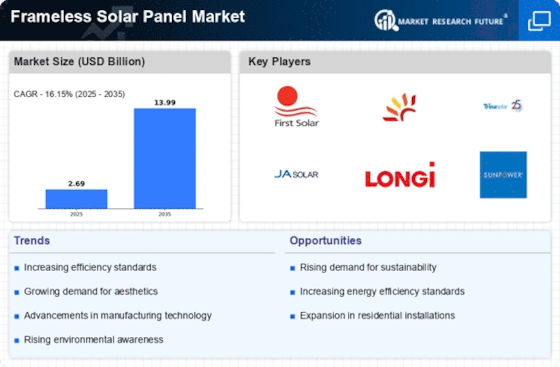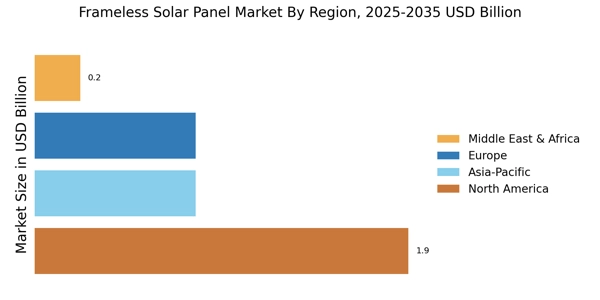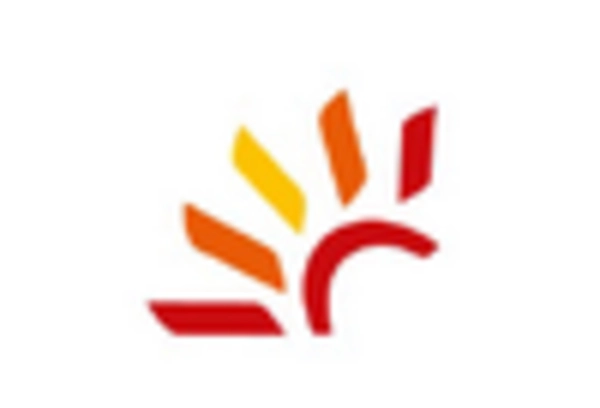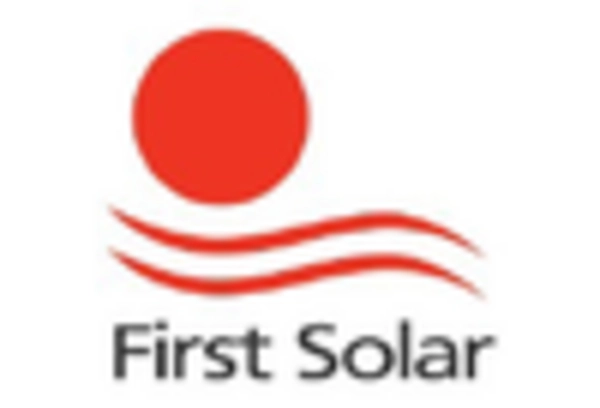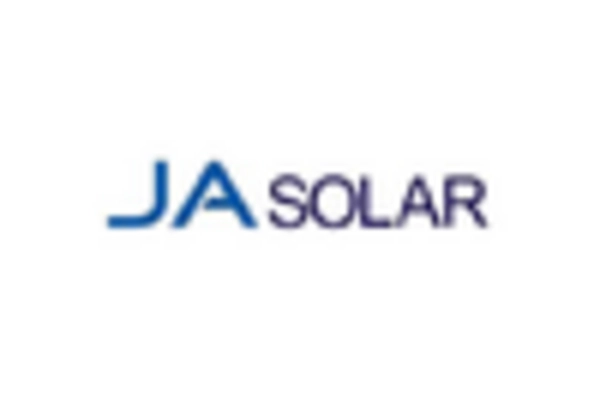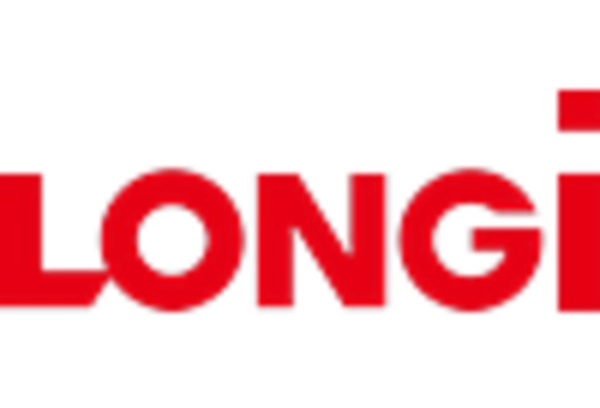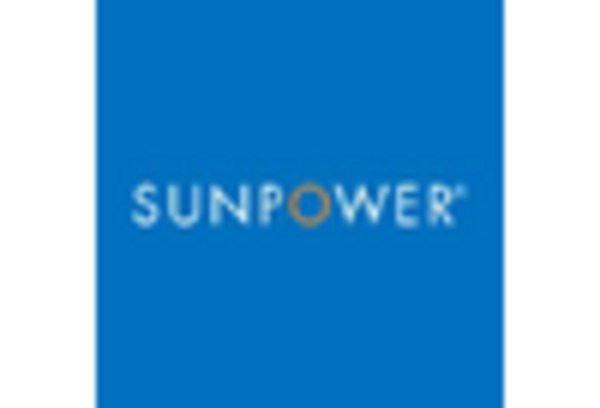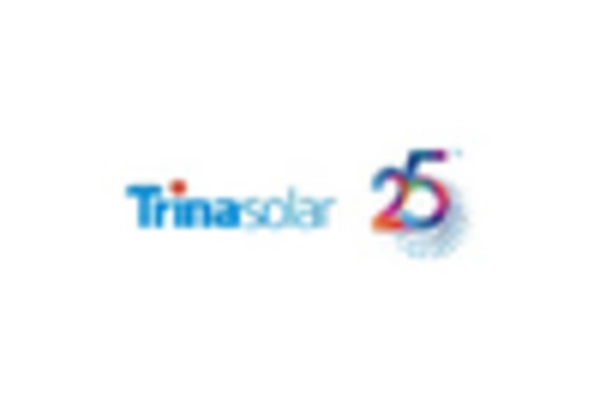Cost Competitiveness
Cost competitiveness is a significant driver for the Frameless Solar Panel Market. The declining costs of solar panel production, attributed to advancements in manufacturing processes and economies of scale, have made solar energy more accessible to a broader audience. In recent years, the price of solar panels has decreased by nearly 80%, making them a viable option for both residential and commercial applications. This reduction in costs, coupled with the long-term savings associated with solar energy, positions frameless solar panels as an attractive investment. As consumers become more price-sensitive, the affordability of frameless solar panels is likely to enhance their market penetration, leading to increased adoption rates across various sectors.
Technological Innovations
Technological innovations play a crucial role in shaping the Frameless Solar Panel Market. Advancements in photovoltaic technology have led to the development of more efficient and durable frameless solar panels. These innovations include improvements in solar cell efficiency, which has reached levels exceeding 22% in some cases. Additionally, the integration of smart technologies, such as IoT-enabled solar panels, enhances energy management and monitoring capabilities. As manufacturers continue to invest in research and development, the introduction of next-generation materials and designs is expected to further enhance the performance and appeal of frameless solar panels. This continuous evolution in technology not only attracts consumers but also encourages investment in solar energy infrastructure, thereby driving market growth.
Consumer Awareness and Education
Consumer awareness and education are increasingly influencing the Frameless Solar Panel Market. As individuals become more informed about the benefits of solar energy, including its environmental advantages and potential cost savings, the demand for frameless solar panels is expected to rise. Educational initiatives and marketing campaigns by solar companies are playing a vital role in disseminating information about the efficiency and aesthetic benefits of frameless designs. In 2025, it is projected that consumer awareness will continue to grow, leading to a more informed customer base that actively seeks out solar solutions. This heightened awareness not only drives demand but also fosters a competitive market environment, encouraging innovation and improved product offerings in the frameless solar panel sector.
Government Incentives and Policies
Government incentives and policies are pivotal in driving the Frameless Solar Panel Market. Many governments worldwide have implemented favorable policies to promote renewable energy adoption, including tax credits, rebates, and feed-in tariffs. These incentives not only lower the initial investment costs for consumers but also create a conducive environment for the growth of the solar industry. In 2025, it is anticipated that several countries will expand their renewable energy targets, further supporting the adoption of frameless solar panels. Such regulatory frameworks encourage both residential and commercial entities to invest in solar technology, thereby propelling market growth. The alignment of government policies with sustainability goals is likely to enhance the attractiveness of frameless solar panels.
Rising Demand for Renewable Energy
The increasing demand for renewable energy sources is a primary driver for the Frameless Solar Panel Market. As nations strive to reduce their carbon footprints and transition to sustainable energy solutions, the adoption of solar energy has surged. In 2025, the solar energy sector is projected to grow at a compound annual growth rate of approximately 20%, indicating a robust market for frameless solar panels. These panels, known for their lightweight and aesthetic appeal, are becoming increasingly popular among residential and commercial users. The shift towards renewable energy is not merely a trend but a necessity, as energy security and environmental concerns take precedence in energy policies worldwide. This growing inclination towards clean energy solutions is likely to bolster the frameless solar panel market significantly.


